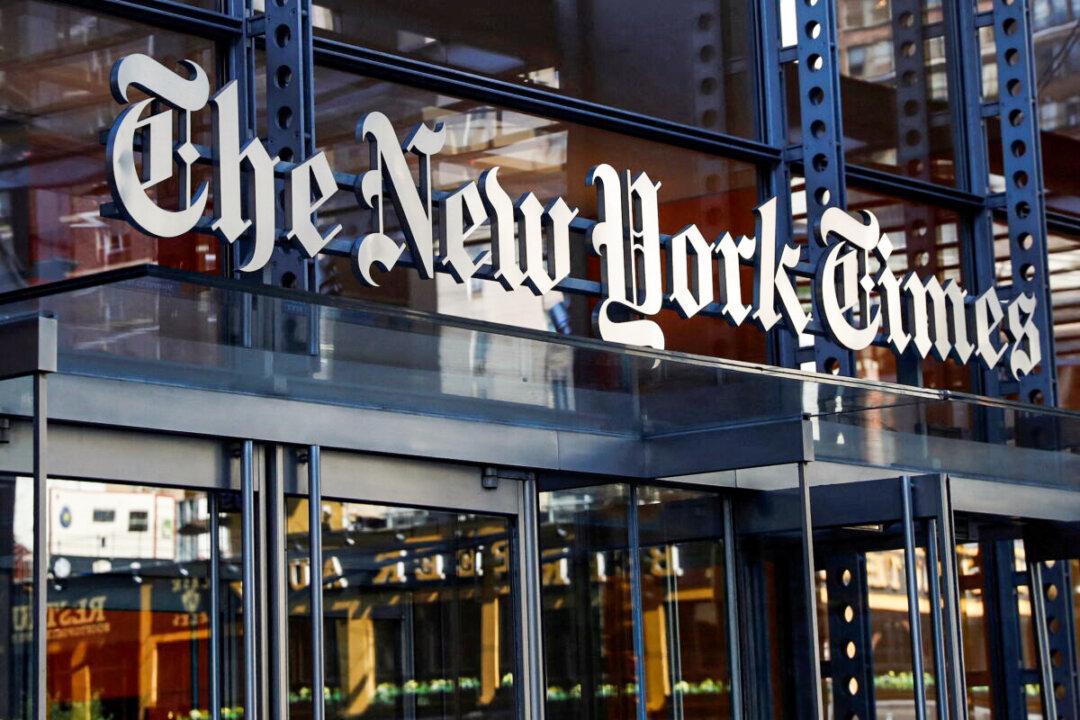An appeals court panel in New York state has temporarily blocked an order that had prevented The New York Times from publishing documents from the investigative journalism organization Project Veritas.
Enforcement of New York Supreme Court Justice Charles Wood’s Dec. 23, 2021, order has been stayed until a full appeal can be heard, the panel of the court’s Appellate Division said in a brief decision.





